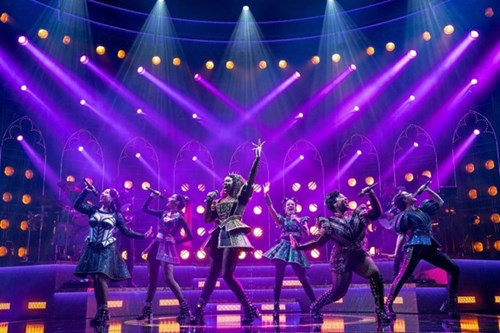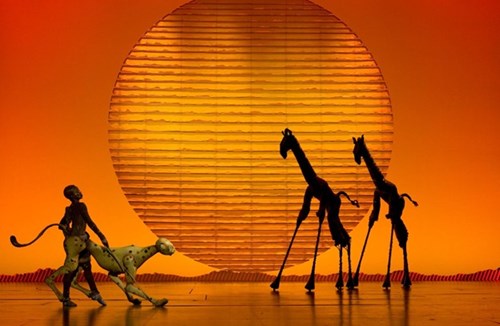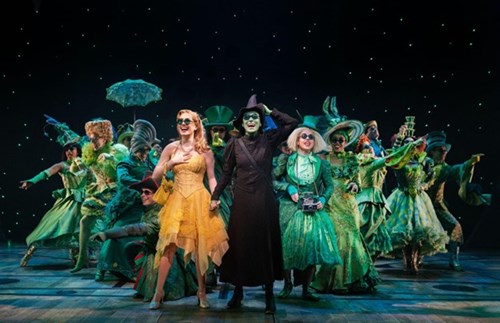
Broadway is a dazzling spectacle of talent, creativity, and cultural expression. It's a place where dreams are painted on a canvas of illuminated marquees and echoed in the melodies of timeless show tunes. However, beneath the glitz and glamour, there's a rich, complex, and often overlooked narrative that weaves itself into the fabric of every curtain rise and fall. This is the narrative of women's roles and influence in Broadway's history, a compelling chronicle shaped by the infusion of feminist ideals and struggles for gender equality. This topic, though not often explored in mainstream dialogue, holds immense relevance in the present context of continual feminist movements and the urgent call for equal representation in all spheres of life.
By understanding the feminist history of Broadway, you not only celebrate women's achievements and resilience but also gain insights into the ongoing journey toward gender parity in theatre, a journey that is far from over. In the heart of every Broadway melody, there's a story of a woman who dared to dream, to fight, and to create. And it's time we listened to these stories.
As we turn back the pages to the early 20th century, Broadway was just beginning to find its rhythm. A hub of theatrical innovation and artistic expression, it was rapidly growing into a symbol of American culture. Yet, it was also a reflection of the times, a mirror to the societal norms and gender roles that were firmly entrenched in the psyche of the nation. Women on Broadway, both on and off stage, found themselves pigeonholed into limited roles and stereotypes. Female characters were often reduced to stock figures - the ingénue, the femme fatale, the mother figure - portraying a narrow and often demeaning view of women. Behind the scenes, women's roles were even more limited, with few opportunities to write, direct, or produce.
However, even in this era of constraint, there were women who broke the mold and carved a niche for themselves. Pioneering figures like Antoinette Perry, for whom the Tony Awards® are named, began to make their mark. Perry, an actress-turned-director, was one of the first women to direct on Broadway, challenging the notion that women couldn't helm a production. Similarly, Rachel Crothers was another force to reckon with. Crothers penned over 30 plays during her career, addressing feminist issues and pushing the boundaries of the roles women could play on stage. These women, and others like them, were the early torchbearers of feminism on Broadway, initiating a slow but steady shift toward more diverse and empowering roles for women in theatre.
As the 20th century progressed, so did the presence of women on Broadway, particularly in the realm of playwriting and directing. This period saw the emergence of women playwrights and directors who were unafraid to challenge the status quo, introduce new narratives, and change the landscape of Broadway. Their work pushed boundaries, explored uncharted territories of human experience, and importantly, represented women's perspectives.
Among these trailblazers was Lorraine Hansberry, whose play A Raisin in the Sun made her the first Black woman to have a play performed on Broadway. Hansberry’s work offered a profound critique of racial and gender inequalities, challenging audiences to confront these societal issues head-on. Similarly, Garry Hynes, founding member of the Druid Theatre Company, became the first woman to win a Tony Award® for directing a play, breaking the glass ceiling for future female directors.

Julie Taymor, yet another influential figure, redefined the possibilities of stage production with her visionary directing and costume design in The Lion King, becoming the first woman to win a Tony Award® for directing a musical. Meanwhile, playwrights like Wendy Wasserstein and Marsha Norman brought women's issues to the forefront, their plays resonating with authenticity and depth of female experiences.
Broadway's early female character archetypes were largely reflective of the prevailing societal views. Women were often depicted as one-dimensional characters, either as damsels in distress, virtuous mothers, or seductive temptresses. These portrayals were not just limiting, but also perpetuated stereotypes, giving little room for the exploration of the fullness and diversity of women's experiences.
However, as the decades rolled on, these archetypes began to evolve, mirroring the societal shifts and the changing perceptions of women's roles. Plays like A Streetcar Named Desire and The Glass Menagerie by Tennessee Williams introduced complex female leads who were deeply flawed yet compelling, breaking away from the convention of idealized women.
The evolution continued with the advent of musicals like Rent and Wicked, where female characters were no longer just supporting roles, but the driving forces of the narrative. They were strong, independent, and multifaceted, embodying a wide range of characteristics and experiences. More recent productions, such as SIX and Fun Home, have presented women as the central figures, dealing with issues such as abuse, self-discovery, and sexual identity, further pushing the boundaries of female representation on stage.
As we traverse into the contemporary scene, the presence of women in Broadway is more palpable than ever before. Women playwrights, directors, and performers are steadily making their mark, pushing the boundaries of artistry and representation. This is evident in the recent surge of female-led shows that are not only breaking box office records but also challenging the norms and narratives of Broadway.

Kimberly Akimbo, a musical centered around a quirky, aging teenager, showcases a unique female protagonist, presenting themes of self-acceptance and resilience. Meanwhile Chicago, with its female lead cast, explores themes of fame, justice, and the media, all through the lens of strong, complex women. Another modern hit, SIX, reimagines the lives of Henry VIII's wives as pop divas, giving voice to women who were previously defined by their relationship to a man. Finally, Wicked, with its powerful female friendship at the core, continues to captivate audiences, challenging traditional notions of villainy and heroism.
In spring 2024, a brand new musical Suffs will emerge as a bold, unapologetic story of women's empowerment and resilience. This dynamic production will fittingly contribute to the ongoing feminist narrative on Broadway. The show honors the tireless Suffragists who fought fervently for women's voting rights in the early 20th century. The narrative is a poignant reminder of women’s resilience, bravery, and tenacity, attributes that are often mirrored in the diverse and complex female characters we see on Broadway today.
However, despite these strides, the journey toward gender equality on Broadway is far from over. Women still remain underrepresented in key roles such as directing and producing. The pay gap continues to persist, and stories centered around women, particularly women of color and queer women, are still not as prevalent as they should be.
Nevertheless, the landscape is shifting. With initiatives like The Lilly Awards, which celebrate women in theatre, and the increasing recognition of female talent, the future seems promising. The rise of female voices on Broadway is not just a victory for women in theatre, but also for the audiences who are yearning for diverse, authentic, and compelling narratives.
The power and influence of women in Broadway history is undeniable. Each curtain rise, each line spoken, each character portrayed, is a testament to their enduring spirit and creativity. The stage that once echoed with their silent dreams now resonates with their powerful voices. Their stories, etched in the heart of Broadway, continue to inspire, challenge, and captivate.
As we celebrate their journey, let's also partake in it. Let's flock to the theatres to witness the magic of female-led shows like Kimberly Akimbo, Chicago, SIX, and Wicked. Let's immerse ourselves in the narratives they weave, the characters they bring to life, and the worlds they create. For each ticket we buy, each standing ovation we give, is not just a tribute to their talent, but also a step toward a more inclusive, equitable, and diverse Broadway. Instead of witnessing the history of women in Broadway from outside, become a part of it.